Machu Picchu, Things to Consider in Your Visit Plan
Starting June 1, 2024, Machu Picchu has implemented new visitor circuits, featuring three main routes with specific differences to distribute visitors across various areas, making a total of ten visit routes. These changes aim to enhance the visitor experience and preserve the integrity of the archaeological site.
This guide will help you make the most of your trip to Machu Picchu. We offer practical tips and activity recommendations to plan an unforgettable visit to one of the most astonishing archaeological sites on the planet. Get ready for an unparalleled adventure in Machu Picchu!
Machu Picchu: An Ancient and Sustainable City
What You Need to Know if You Plan to Visit This Incredible World Heritage Site in Peru.
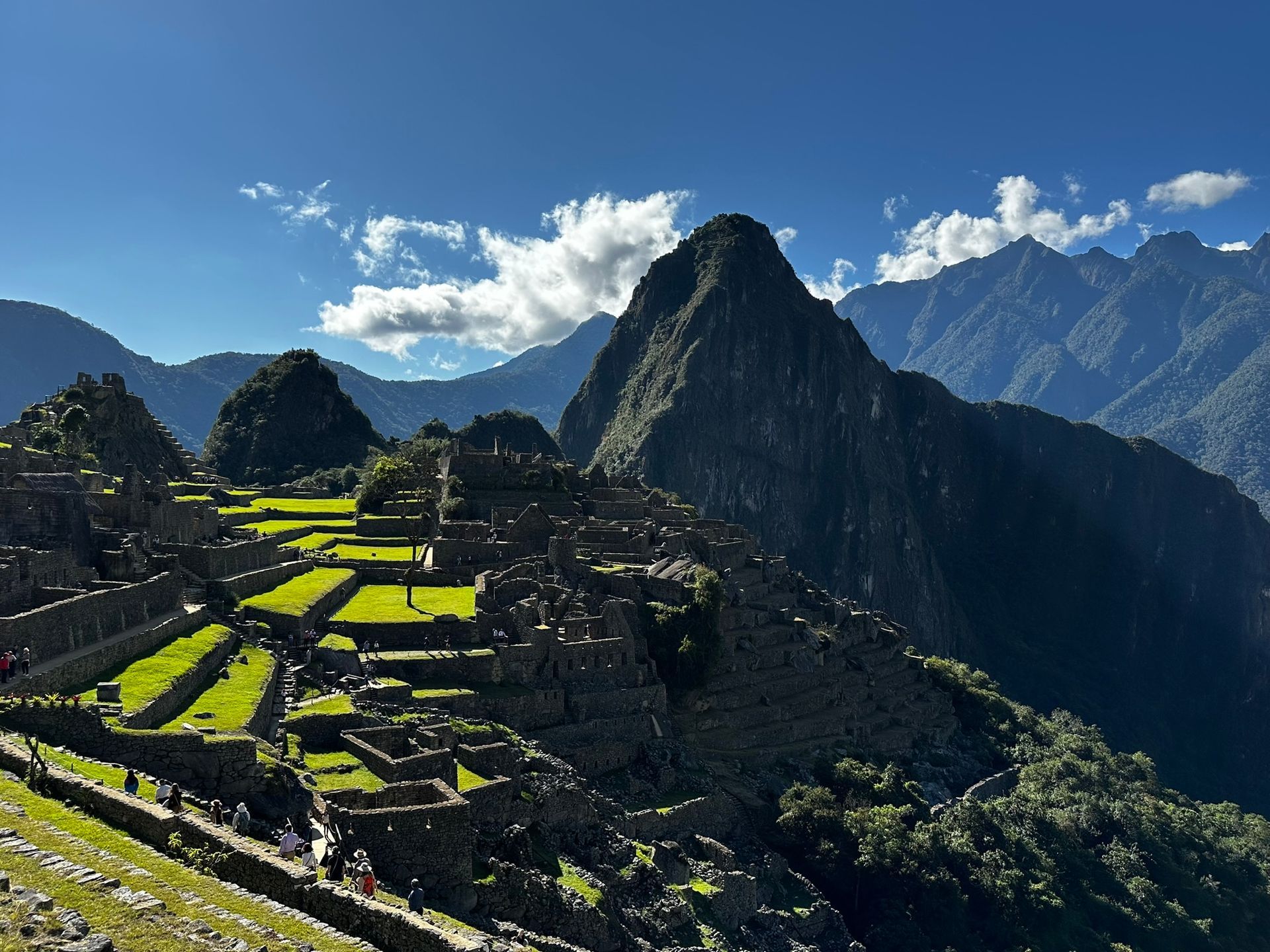
Limited Access
Machu Picchu has a daily visitor limit to help preserve the site. This restriction ensures that the location remains well-maintained and does not become overcrowded.
High Demand
Due to limited access, tickets for Machu Picchu can sell out quickly, especially during peak tourist seasons (Easter Week, May, July to September, October, Christmas, New Year, and other long holiday periods).
It is essential to plan your trip to guarantee your tickets. We suggest purchasing your tour 60 days in advance to be able to choose the most convenient circuit for you.
Mandatory Information for Ticket Issuance
When purchasing tickets, you will need to provide your passport or ID information: full name, passport or ID number, date of birth, and nationality. Make sure your passport is valid and matches the information on your ticket. There are no ticket reservations, only purchases.
If your passport is about to expire, you can enter the current document number and then update the information with your new passport once it's available.

Sustainability of Machu Picchu Starting June 1, 2024
Machu Picchu was originally built by the Incas to house between 500 and 1,000 people. Today, it is visited by 5,600 people each day. To manage this influx and reduce the impact on the citadel, three main routes have been designed, extending through the citadel or visiting the sister mountains to distribute visitors across various paths.
New Visitor Circuits
The highlight of the new circuits is Route 1, the panoramic route, which offers a privileged panoramic view of the citadel. From this vantage point, guides can narrate the history of Machu Picchu and explain the significance of its structures, although access to the rest of the citadel will not be permitted. This access includes the ascent to the summit of Machu Picchu Mountain during the season.
On the other hand, for the protection of the heritage and visitor safety, access to the Inti Huatana Sun Clock has been suspended indefinitely.
Circuit 1: Panoramic
- Route 1-A: Panoramic View and Machu Picchu Mountain
- Duration: 4 hours
- Route 1-B: Upper Terrace or Panoramic View
- Duration: 40 minutes
- Route 1-C: Panoramic View and Inca Trail to Inti Punku
- Availability: High season only
- Duration: 3 hours
- Route 1-D: Panoramic View and Inka Bridge
- Availability: High season only
- Duration: 3 hours
Circuit 2: Classic Machu Picchu
- Route 2-A: Classic Route
- Duration: 3 hours
- Route 2-B: Similar to Route 2-A with access to a lower terrace of the upper Machu Picchu view
- Duration: 3 hours
Circuit 3: The Royalty
- Route 3-A: Royalty Circuit and Wayna Picchu Mountain
- Duration: 4 hours
- Route 3-B: Designed or Royalty Route
- Route 3-C: Royalty Circuit and Great Cave
- Availability: High season only
- Route 3-D: Royalty Circuit and Huchuy Picchu Mountain
- Availability: High season only
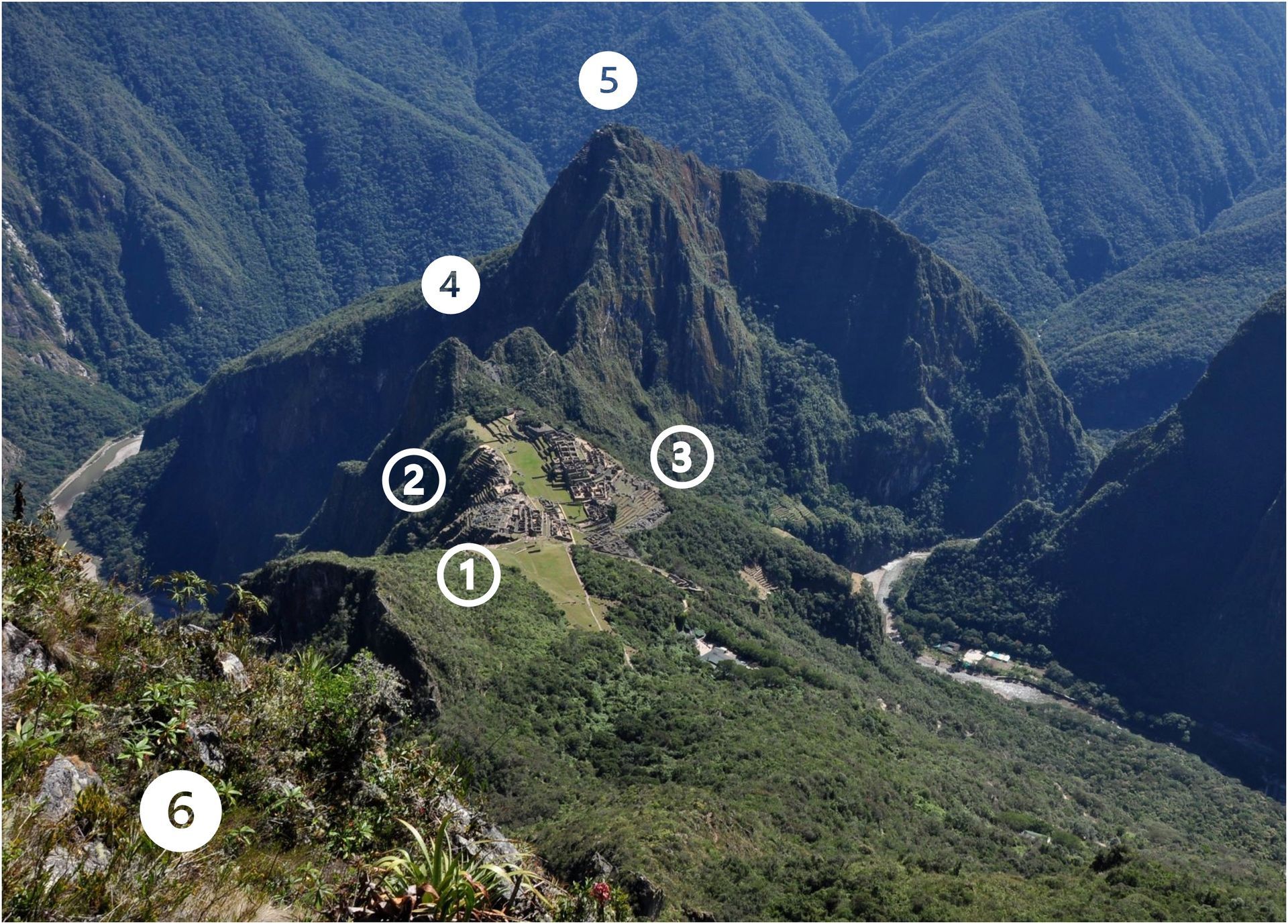
Panoramic photograph taken from the top of Machu Picchu Mountain (6). Upper Terrace or Panoramic View (1). Classic Circuit (2)+(3). Royalty Circuit (3).
Huchuy Picchu Mountain (4). Wayna Picchu Mountain (5).
Circuit 1: Panoramic View and Machu Picchu Mountain
This circuit offers spectacular views of the citadel from several elevated points. It includes the route to Machu Picchu Mountain (Route 1-A), the Upper Terrace (Route 1-B), the Intipunku Gate (Route 1-C), and the Inka Bridge (Route 1-D), the latter two available only during high season.
This circuit allows visitors to appreciate panoramic views and capture iconic photos from the Guardian's House, although it does not include access to the interior of the citadel. It is ideal for those who wish to have a comprehensive visual perspective without touring the core of the archaeological site.
- Estimated duration ascending to the summit of Machu Picchu Mountain: 4 hours.
Circuit 2: Classic Machu Picchu Route
Known as the Classic Circuit, this offers an extensive and in-depth experience of the Inca citadel, taking visitors through several of its most emblematic areas over a period of 3 hours. Highlights include panoramic views from the Guardian's House, the quarries, the Main Plaza, the Temple of the Three Windows, an upper view of the Temple of the Sun, and a tour through the Royalty Circuit.
This circuit is divided into two routes: Route 2-A (Designed Route) and Route 2-B (Lower Terrace Route), both similar, with the only difference being that one leads to the upper terrace of the Guardian's House and the other to the lower terrace, to avoid overcrowding the terraces.
- Estimated duration: 3 hours.
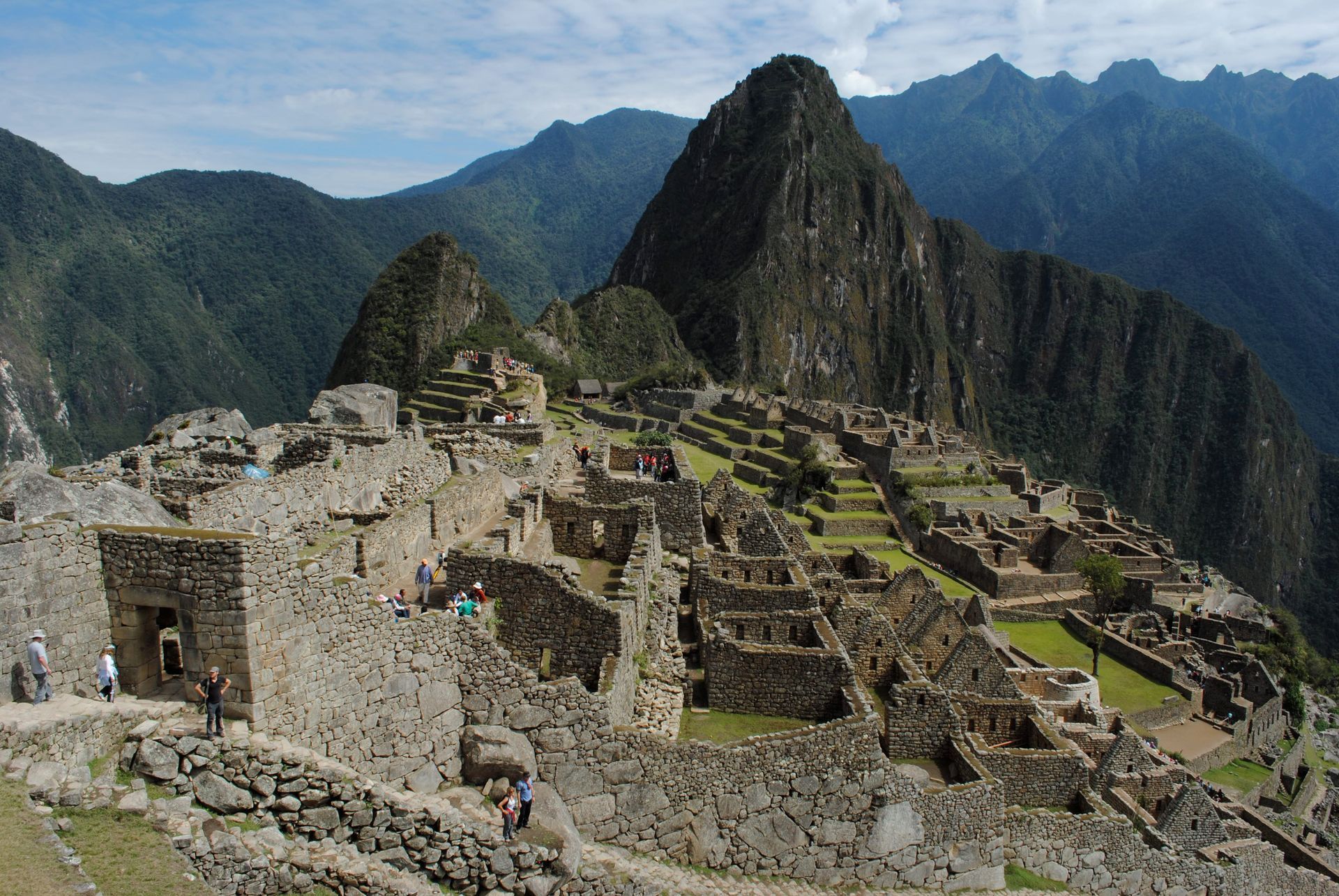
Circuit 3: The Royalty Route
An exclusive experience designed for travelers who prefer a route that doesn't require the strenuous initial ascent of Circuit 2. This circuit brings visitors closer to the heart of the sacred citadel and allows them to explore several sacred sites, such as the Temple of the Sun and the Temple of the Condor, in a more relaxed and personal manner. It allows visitors to absorb the atmosphere of the place without rushing and takes approximately one hour to complete.
In addition, this circuit serves as the gateway to some of the most adventurous and demanding trails available for exploring the Inca citadel: the ascents to Huchuy Picchu Mountain and Wayna Picchu. The route traverses more isolated and preserved areas of Machu Picchu, allowing for a closer encounter with the local flora and fauna. This can include birdwatching and possibly spotting some smaller mammals typical of the Andean region.
This circuit is particularly popular among visitors who seek not only to appreciate the beauty and history of the site but also to challenge themselves with a more intense hike.
- Estimated duration ascending to the summit of Wayna Picchu Mountain: 4 hours.
- The Royalty Route duration only: 2:30 hours.
Virtual Photografic Tour

Photograph taken from the summit of Wayna Picchu Mountain, Circuit (3-A) at 10:20 a.m.
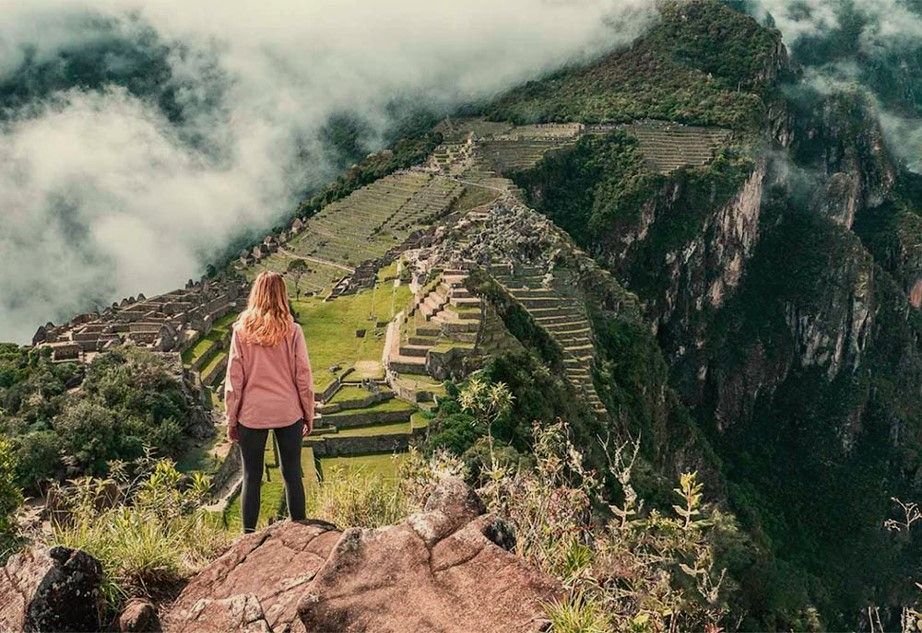
Photograph taken from the summit of Huchuy Picchu Mountain, Circuit (3-D) at 11:00 a.m.
Where to Buy Tickets ?
You can purchase tickets for Machu Picchu through the official government website www.tuboleto.cultura.pe or in person at designated locations in the town of Machu Picchu one day in advance.
It is recommended to book our Machu Picchu Day Trip from Cusco tour at least 60 days in advance to ensure availability and to get the best schedules and circuits.
Guided Tours
A maximum of 10 visitors per guided group is allowed. Visitors can opt for a private guide in their language to explore Machu Picchu and gain a deeper understanding of its history and significance.
What is the altitude of Machu Picchu ?
The citadel is located at an altitude of 2400 meters above sea level, below Cusco, which is at 3400 meters above sea level. It is important to acclimatize properly to avoid altitude sickness. It is recommended to spend one or two days in Cusco or another higher altitude location before going to Machu Picchu.
What Is Not Allowed?
Please remember to follow the rules and guidelines when visiting the citadel of Machu Picchu. The following are not permitted:
- Bringing in food and alcoholic beverages
- Smoking
- Climbing on walls
- Writing or vandalizing the archaeological site
- Taking photos with banners or flags of companies, associations, or any commercial brands
- Making excessive noise with speakers or shouting
- Using trekking poles
- Littering
- Conducting commercial activities
- Using drones
- Using professional filming or photographic equipment (all filming intended for mass media must have the required permit)
- Bringing pets
Respecting the natural and cultural heritage of the site and staying on designated trails is mandatory. Park rangers are authorized to remove violators from the archaeological site.
Please note that there may be changes or updates to the regulations and procedures for visiting Machu Picchu.
Reserve your tour in advance to ensure the opportunity to experience this incredible destination.
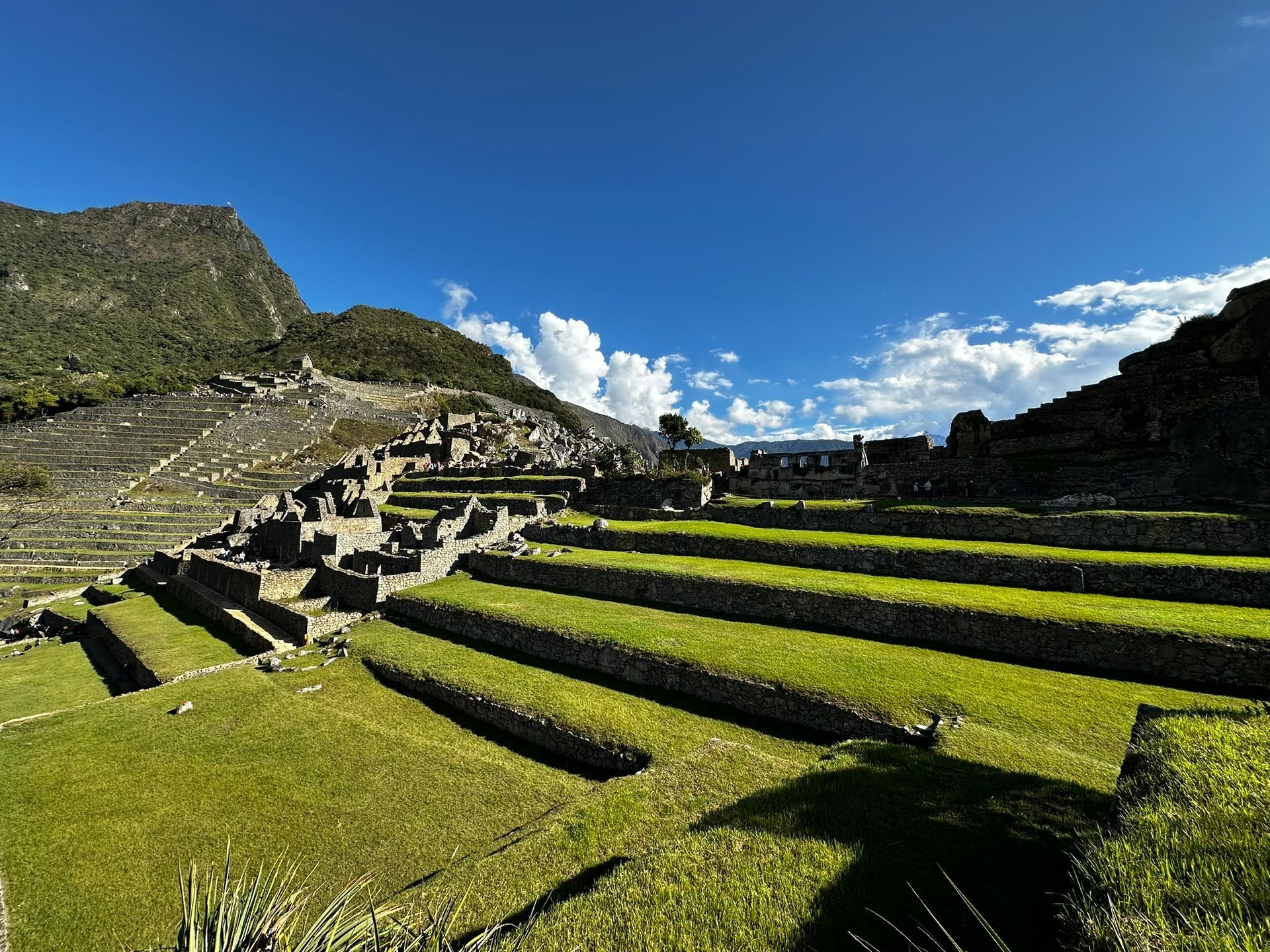
Photograph taken from the Royalty Circuit (3) at 3:10 p.m.




